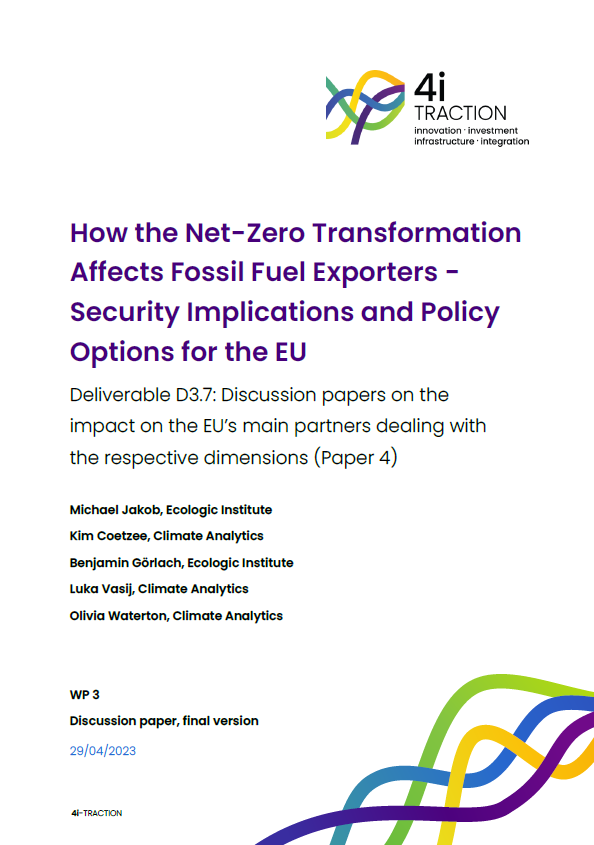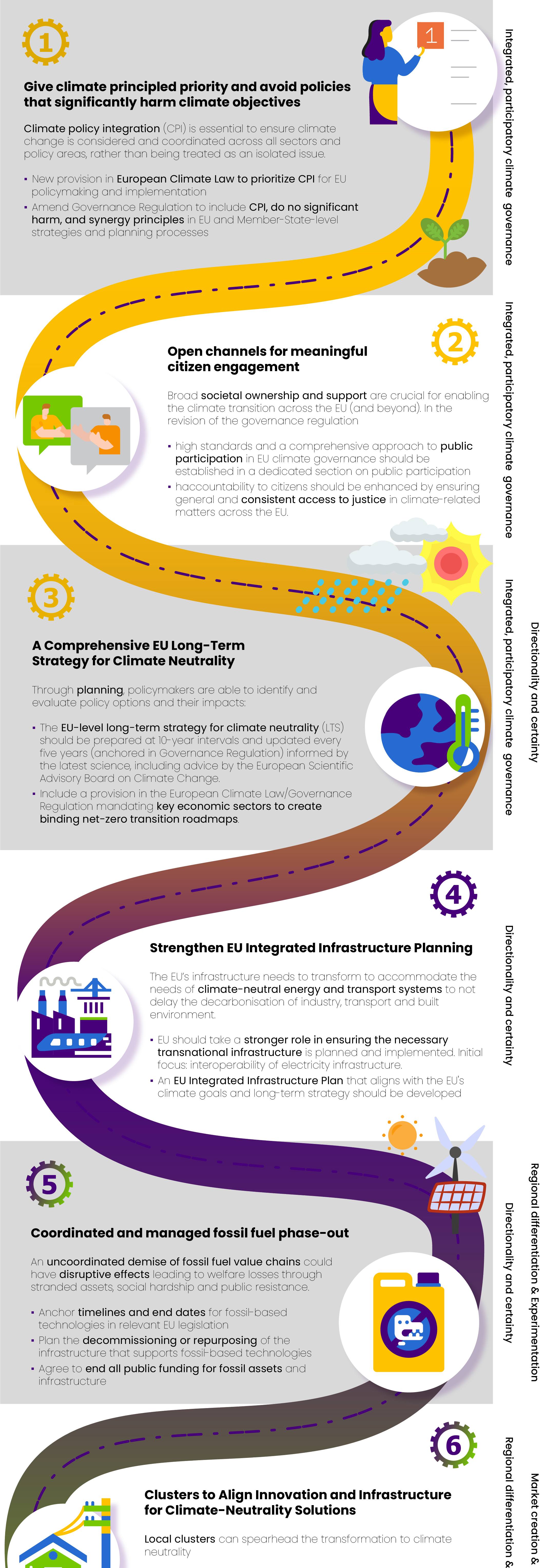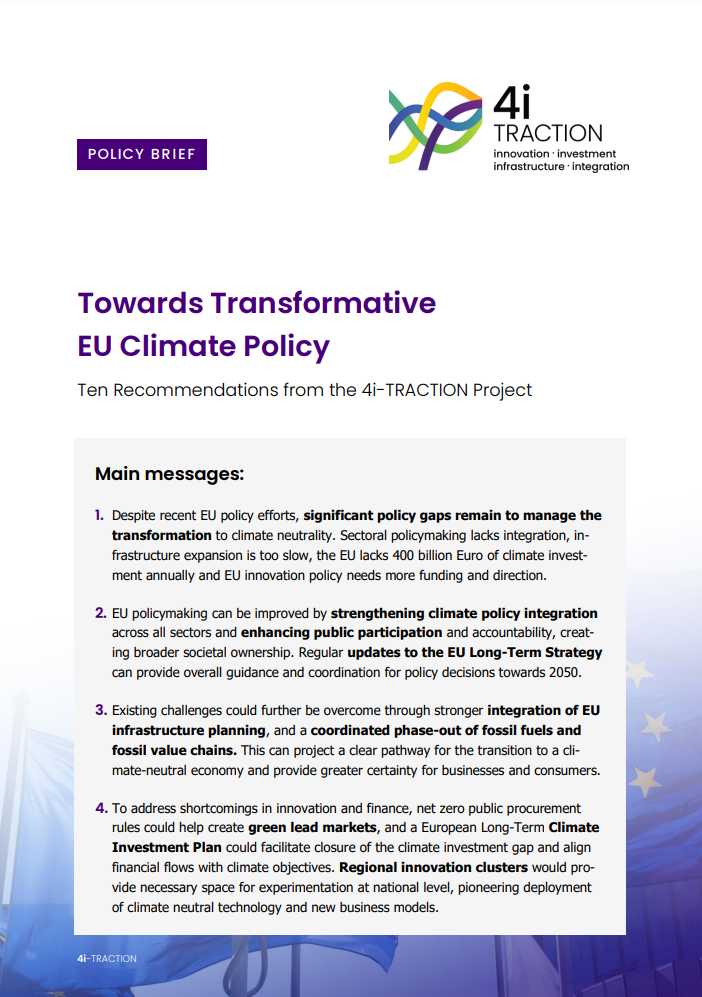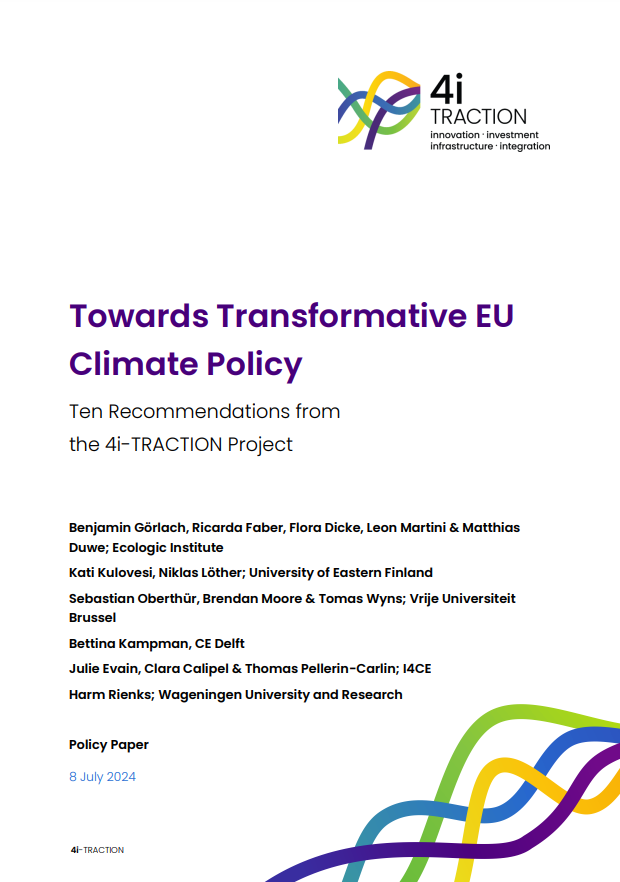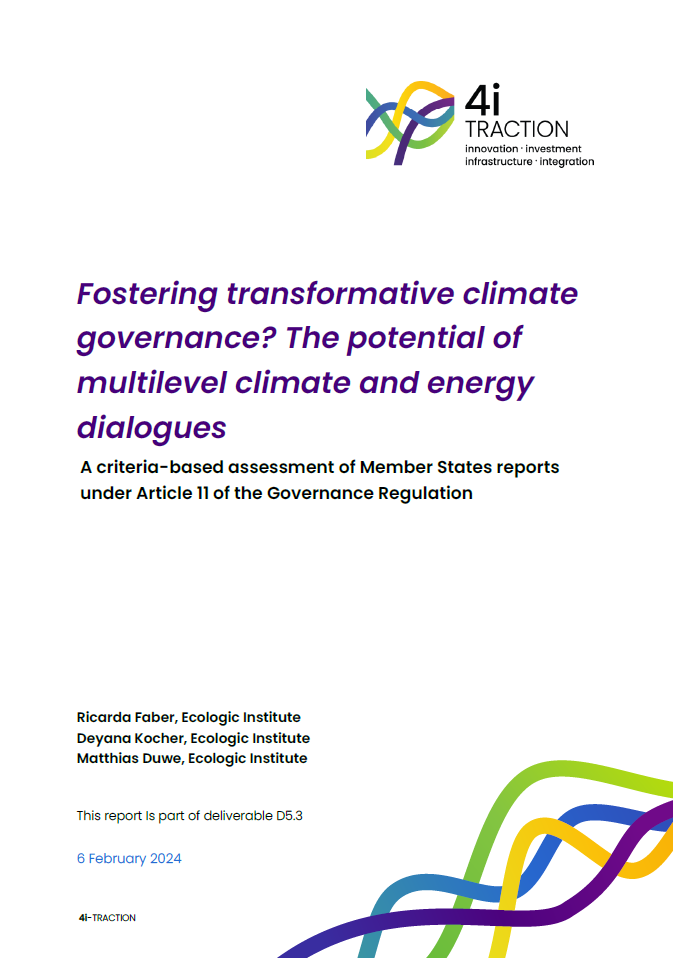How the Net-Zero Transformation Affects Fossil Fuel Exporters
Security Implications and Policy Options for the EU
- Publication
- Citation
Jakob, M., Coetzee, K., Görlach, B., Vasij, L., Waterton, O.(2023): How the Net-Zero Transformation Affects Fossil Fuel Exporters - Security Implications and Policy Options for the EU. Discussion Paper of the 4i-TRACTION Deliverable D3.7. Climate Analytics, Ecologic Institute. Berlin.
Understanding the potential security risks resulting from the EU's net-zero transformation is crucial, given the geopolitical tensions observed in recent years.
The transition to a net-zero economy requires a significant reduction in fossil fuel consumption, potentially leading to lower global market prices for oil and natural gas and posing challenges for countries heavily reliant on fossil fuel exports. Therefore, this study provides a conceptual framework to analyze the security implications of the EU's transition. It defines security aspects, proposes a typology to classify fossil fuel exporting countries based on their exposure, capacity to adjust, and importance to EU security. The paper examines policy options for countries to mitigate adjustment costs and discusses how the EU can support these policies. Finally, key implications for EU policymakers are highlighted.
Countries highly dependent on fossil fuel rents must develop comprehensive transition strategies, and the international community needs to support states without the capacity to do so to ensure an equitable transition. Fossil fuel producers should focus on developing a diversified economy which integrates green sectors and technology, building long-term capacity, funding, and social structures that can support a just transition. Successful international cooperation will rely on coordination with major economic powers like the US, China, and India. Despite current geopolitical tensions, joint actions in the international climate and trade regimes, G7, G20, or multilateral development banks remain feasible. By supporting fossil fuel-dependent countries in the transition to renewable energy, the EU can navigate the net-zero transition while mitigating potential risks and fostering global cooperation.
